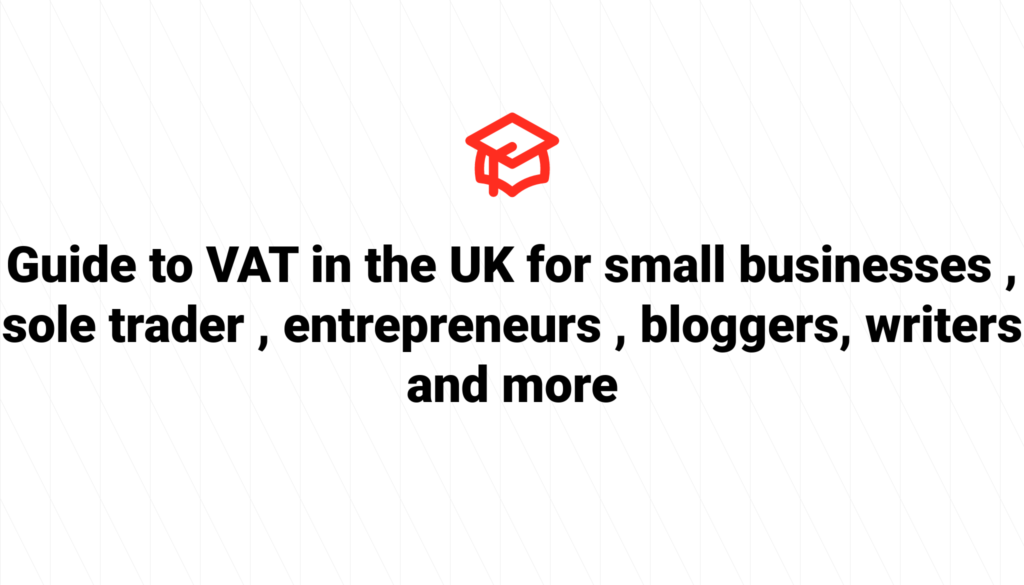Small Business: Basic VAT Guide for small businesses, self employed and sole traders in UK
VAT means Value Added Tax. This means tax paid on the value of goods or services you purchase in the UK whether as an individual or as a business. It doesn’t matter who you are as long as the goods or service is VAT taxable, VAT will be added to the price of the good/service you purchase.

VAT is an indirect tax charged by the government on goods/services that are traded domestically within the UK and it is administered by VAT registered businesses on behalf of the government (HMRC).
Other countries have their own method of charging VAT but we are concentrating on the UK VAT in this guide.
All goods/services delivered by businesses fall into a VAT category. They are namely:
- Standard rate – 15% ( as of April 2009 )
- Reduced rate – 5%
- Zero – 0%
Not all goods and services are subject to VAT, they are either :
- Exempt from VAT or
- Outside the UK jurisdiction for VAT purposes
As a business you MUST register for VAT once your turnover reaches £68,000 per annum or can register voluntarily if the owner want to take advantage of claiming back the VAT they pay for their own business goods and services. Businesses include sole trader, self employed, entrepreneurs etc
If a business is not VAT registered with the HMRC, that business cannot claim back the VAT paid for goods and services they acquire for their business. Also individuals i.e. every day normal people cannot claim back VAT paid on goods and services they purchase because that’s just the rules. VAT is only paid on traded goods and services and because individuals are not classed as trading businesses, so they are not eligible for VAT reclaiming !
Businesses that are registered for VAT in UK are required to keep certain records in order to effectively complete a VAT return when they are required to do so. They must keep an up-to-date business record as well as an up-to-date VAT record.
These business records include bank statements and pay in slips, orders and delivery notes, cashbooks and other account books, sales and purchase books, record of daily takings, annual accounts such as a income statements and relevant and important business correspondence.
VAT records that need to be kept is quite extensive but some of them are all the business purchase invoices, copies of all credit notes your business issues, any record of goods you export, records of goods and services that your business incurred but you can’t make a VAT reclaim for eg business entertainment, and more amongst other records that needs to be kept. Your accountant will be able to help you with these in much more detail.
The area of VAT is very extensive and can not be covered in one go but see my other guides for title specific information. These include specific keywords or areas that are explained in a easy to understand way.
